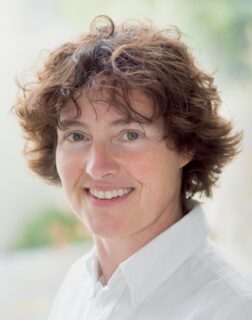About the project
The Schwille group aims to (re)construct cellular processes, and ultimately minimal living cells, from dramatically simplified functional subsystems, such as proteins and protein assemblies. Besides being able to investigate biomolecular processes with unprecedented precision in cell-free environments, this approach will also provide insights about the emergence of complexity as a main driver of biological evolution. We have in the past accomplished a thorough biochemical mastering of a class of self-organizing, pattern-forming bacterial proteins that can be harnessed to precisely position proteins and other surface-bound molecules on biological membranes. As membrane-less condensates have recently shown to act as local membrane-active agents, we will explore how and whether different kinds of biological condensates can be actively targeted to membrane surfaces and within protocell vesicles. The project aims at tailoring the protein positioning machinery to position both, surface-attached condensate nuclei, and whole condensate droplets on membranes of variable composition, size, and shape.
The project will include mandatory secondments at UC London, UK (Di Michele Group), and at MPI Potsdam (Reinhard Lipowsky), as well as further optional ones.
Selected References
- Litschel, T., Kelley, C. F., Cheng, X., Babl, L., Mizuno, N., Case, L. B., Schwille, P.,Membrane-induced 2D phase separation of the focal adhesion protein talin, Membrane-induced 2D phase separation of the focal adhesion protein talin, Nat Commun 15, 4986 (2024)
- Reverte-López, M., Gavrilovic, S., Merino-Salomón, A., Eto, H., Yagüe Relimpio, A., Rivas, G., Schwille, P., Protein-Based Patterning to Spatially Functionalize Biomimetic Membranes Small Methods 7, 2300173 (2023)
- Ramm, B.*, Goychuk, A.*, Khmelinskaia, A., Blumhardt, P., Eto, H., Ganzinger, K., Frey, E., Schwille, P. A diffusiophoretic mechanism for ATP-driven transport without motor proteins Nat Phys 17, 850-858 (2021)
Doctoral Candidate: Ted Lindström

Ted holds two master’s degrees from Lund University: one in molecular biology and one in bioinformatics. His combined masters thesis was in de-novo protein design, with the aim of designing a metamorphic protein. Before joining our MSCA doctoral network, Ted also worked as a laboratory technician in a vaccine development project, and as a technician at the Skåne University hospital NGS facilty.
Hosted by:
Petra Schwille
Max Planck Institute of Biochemistry, Martinsried
Cellular and Molecular Biophysics
https://www.biochem.mpg.de/schwille

